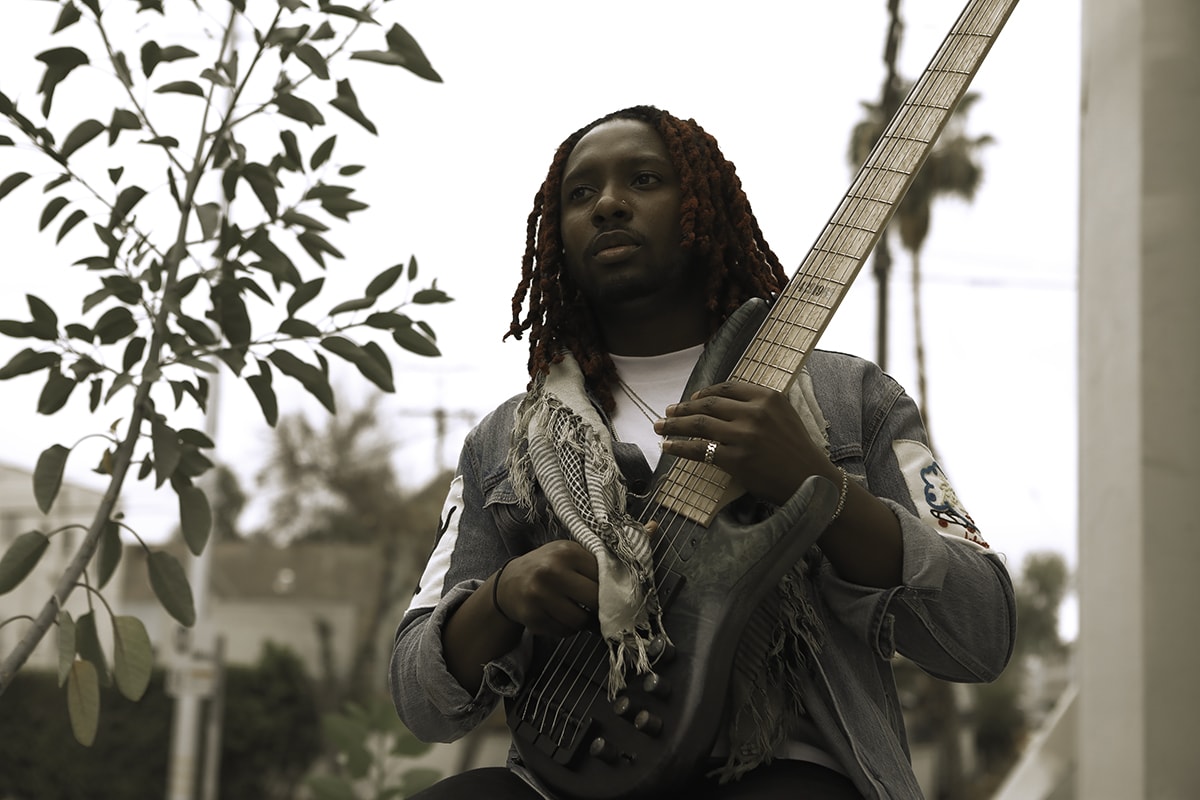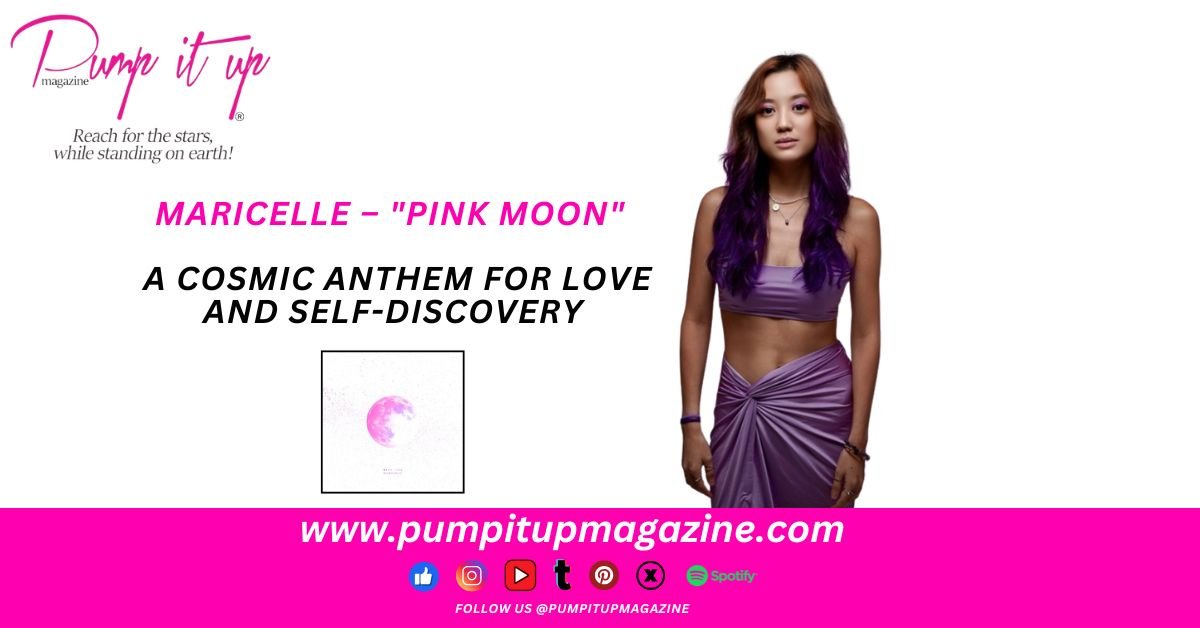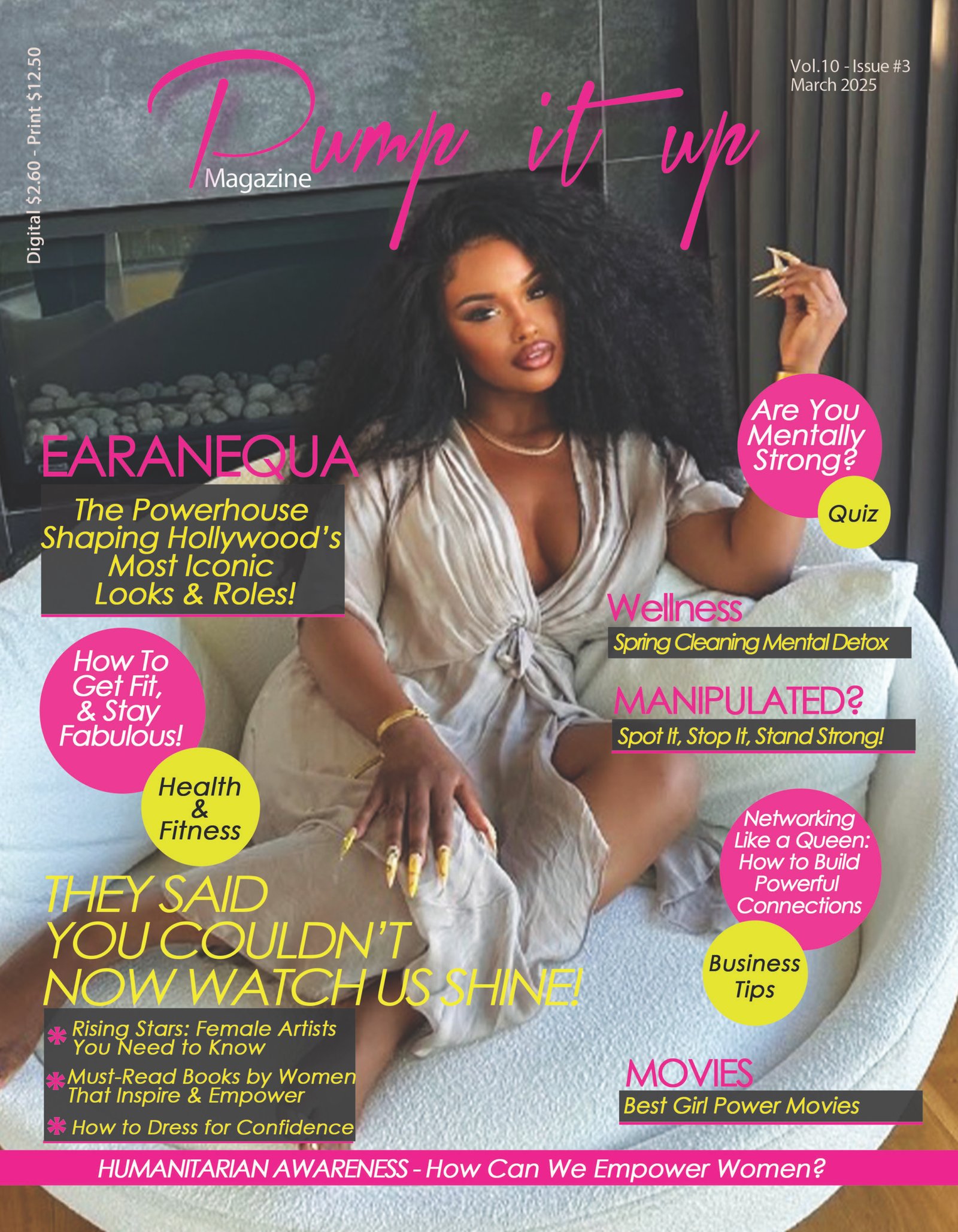“It was really hard. Even writing that song I was literally tearing up and I mentioned that in the verse. It was wild, and I surprised myself because I didn’t know how strongly I felt about the situation at that very moment,” he says. “I had to take a step back from the song for an hour or however many minutes and then go back to writing it, and then by the time I was ready to record it was fine. I felt better because I had already released that energy.”
In addition to ruminating on his mother’s passing and his relationship with his sister, Paige also offers a sobering look at himself on “Ode to Inebriation,” where his lush bass chords and chunky break drums lay the groundwork for perhaps the most unflinching look at alcohol abuse since Kendrick Lamar’s “Swimming Pools (Drank).”
No longer drinking and creatively restored, Letters of Irrelevance is an eclectic, singular statement that may mean The Internet’s secret weapon isn’t a secret any longer. Ahead of the project’s release this Friday, May 18, Paige spoke with us about processing pain through music, how being a bassist informs his songwriting approach, and the upcoming Internet album.
You released an instrumental EP a couple of years ago, but why did this feel like the right time for you to release a solo project with vocals?
To be completely honest, I had been working on this for like two years, and Prelude actually came about because it was originally going to be an album. But those instrumentals I picked, I really liked and didn’t want to just sit on them in the process of taking forever to make an album, so I put them out as a beat tape. I did performances and all kinds of shit with those and it actually went pretty well. Now’s the time because I’ve gone through so much and garnered so much experience and had to get it out some kind of way, you know what I’m saying? Because I got tired of drinking every fucking day and smoking and I was like, “Alright, I need to find another outlet.”
Where does the title Letters of Irrelevance come from and what does it mean?
I actually came up with that title like around 2012 when I was living with a friend. I was trying to work on a solo album way back then and I was living on his couch. What it originally meant for me was all these letters I’m writing about the situation are kind of like my journals. What I’m trying to convey is that the pain from this situation will be irrelevant for me. These letters will become irrelevant to a certain extent when I don’t feel that pain anymore. What I wrote about is like a thing of the past, but I always take those lessons with me.
The album opens with a clip of your mother singing “Silent Night.” Was she a musician?
She was a singer, she had one of the most beautiful voices I’ve ever heard. There are songs with her in choirs and on certain records. I don’t know if she had any solo stuff out, I don’t think so. But that was one of the ones that I found. It was hard to listen to for a while, obviously. I didn’t want to even look at it, because it’s a video. It took a while to get around to do that. I knew I wanted to, but it took a while to finally muster up the kind of strength to do it. Afterwards, I felt better about it, too.
The single “On My Mind,” which is about your relationship with your sister, seems to really hit at what you’re describing. Was it difficult to conjure those concrete moments while you were writing or did they just flow out?
It was really hard. Even writing that song I was literally tearing up and I mentioned that in the verse. It was wild, and I surprised myself because I didn’t know how strongly I felt about the situation at that very moment. I knew how I felt about it going through everyday life, I thought about it everyday, but I didn’t know how much it really affected me until I started writing. Like, certain words I would write out in the verse I literally started crying. It wasn’t easy, and it definitely took a little while. I had to take a step back from the song for a bit and then go back to writing. Then by the time I was ready to record it was fine. I felt better because I had already released that energy.
Has she given you her thoughts on the song?
I’m not sure whether or not she’s heard it, to be honest. She hasn’t said anything. I also didn’t send it straight to her, I wanted to kind of just put it out and have it find its way to her.
Why is that?
I just felt some kind of way about sending it straight to her. I felt kind of vain doing that, because I didn’t make it for that. I made it to really get those feelings off my chest, but not necessarily straight to her. I don’t knock anybody else for doing that, but to me, I thought it would be corny.
I always think it’s interesting when artists combine tracks, and I feel like “On My Mind” and “Charge It to the Game” are very different vibes, so why did you want to link those tracks, both in the video and on the album itself?
Well, that first came about because I was listening back to [“On My Mind”] and going over the track, and I heard back a specific section that I really liked. I kept playing that section over and over, so I sampled that part of the beat and remade a whole new song from. And I just started writing to it and put it at the end of the song, and it made sense. Plus, that’s such a heavy song, I thought it’d be nice to have some kind of sigh of relief or something to just groove to and chill out to at the end of this.
You’ve got a couple moments like that on the record. You’ve got the track with G Perico [“Get It With My N****s”], you’ve got “Do My Dance.” There’s a lot of weighty stuff on the record, and so throughout did you want to make sure there were a couple of these lighter moments for balance?
Yeah, it definitely needs that. That’s exactly what “Do My Dance” was. And I wanted the album to kind of reflect literally how I felt at the time. I would still go out and try to live a normal life and party and do my thing or whatever, so that song kind of made sense for the album, too. I definitely needed something to take a little break from the “I’m so sad” records, you know what I’m saying?
I’ve been listening a lot to both your album and Saba’s new project Care For Me, and both really meditate on grief and loss in ways that are very profound and personal. What makes rap a good medium for you to express those emotions?
Because it’s poetry. I look at it like journaling, but melodically, if that makes sense. I’ll always look at writing as my journal, because I feel really vulnerable when I’m writing, but I feel most comfortable to be vulnerable when I’m writing something. That’s my approach.
You’ve talked about having had issues with alcohol in the past, and obviously that’s the focus of “Ode to Inebriation.” Did writing that song serve as the catalyst in some way for you to make changes to your lifestyle? Are you in a better place now?
I’m definitely in a way better place. I’ve slowed down a lot. At the time I wrote the song, actually, I wrote that on a flight on tour, and on tour is where I would drink. First of all you drink the most because it’s in your face everyday. You go backstage and you’re with your friends, you want to have fun, but sometimes you miss home, you feel these moments. I don’t know what it is about tour, I can’t explain. I love it, but it would also be where I find myself in some dark places sometimes. Not just tour though, at home if I was alone and I was going through a lot I thought I was helping the situation by drinking a lot, but I wasn’t.
So I finally took some time to step back and think about it, realizing I’m tired of waking up sick and throwing up and shit, you know? This is getting old. How can I change this? Have the sins of my father come to catch up with me? Because my dad was an alcoholic for a while, for most of my life. He’s been sober for five years now, shoutout to him. But I’m definitely in a better place now, I actually don’t drink anymore, mainly because of health reasons.
For someone who isn’t familiar with your solo music yet, what do you want their takeaway to be from Letters of Irrelevance?
I hope my story can help somebody. I want people to see the light at the end of the tunnel, because there were a lot of times when I didn’t. I didn’t feel like there was a light at the end of the tunnel, but I just kept going. How I made it, I have no idea, I thank God first and foremost. A lot of times, I still have doubts and questions but there’s obviously somebody higher than me orchestrating all of this. There’s obviously a reason I’m still alive today. I definitely want people to understand and see that I made it through and I feel better today.
There was a track on your SoundCloud, “(Tears) For Souls I Never Knew,” that I wanted to ask about. Could you tell me the origins of that song?
Well, that was right after that shooting in Louisiana [the death of Alton Sterling], and that fucked me up. All of them fucked me up, obviously, especially being African-American, it’s like, fucking stressful seeing that shit on the news like every other week, just because we have cameras now. That shit’s been going on. I literally called my dad and I cried about it. I was distraught, just like everybody else was. I couldn’t believe I just watched this, this dude just got shot by the police. He wasn’t doing anything, he was pinned down. There was nothing he could do and he still got killed.
I was crying about it all day. I went home, I drank about it, took a nap, still couldn’t shake it. So I just picked up my bass that night, it was like 2 a.m. or 3 a.m., I couldn’t sleep, and I just started playing. And then the song that came about was “Tears For Souls I Never Knew” because I never met him, I never met Eric Garner, I never met Trayvon Martin, I never met Sandra Bland, but all these people I cried for. Why the fuck are they dying? Why are they killing us like this? So that’s why I named it that. I just started playing and that just came out.
Does being a bassist impact the way you approach writing melodies and lead vocal lines? There are definitely some musical similarities between you and Thundercat [whose younger brother, Jameel, was a member of The Internet]. Does he inspire you musically?
Oh yeah, totally. I compose completely from my bass. I can play keys well enough to write a song, or guitar just a little bit enough to write a song, but mostly everything will come from bass. I do get a lot of that from Thundercat. I don’t think he knows, but just studying him and listening to him I learned a lot, because he’s my favorite artist and bass player. And a really good friend of mine, a really close friend, so just watching him and how he plays, that inspired me a lot. I’ve never seen anybody do that shit. I want to play like that. He’s the reason I play a six-string.
I saw from The Internet’s Twitter that the new record is done. Is that true?
Yep, the new Internet album is finished and it’s fucking fire. It’s going to be crazy. I’m excited for this one, I’m so excited for this one.
Is there anything you can share about it? How does it compare to Ego Death?
The only thing I can say, that I’m probably allowed to say, is that I think we can all agree as band members it’s for sure topping Ego Death.
I was reading an older interview from 2016 where Syd was saying that putting out solo projects is good for the band because you all need avenues to express your different musical ideas that might not fit into the context of an Internet record. I’m curious if you felt that way with Letters of Irrelevance, and whether doing that was good for you and for the way you worked with the band on this new album?
I definitely agree with Syd, she hit it on the head. We all have different stories to tell, we all have different things to say. We’ve all had experiences that maybe the next band member hasn’t had, and I think it’s important for us to have all gotten out how we feel separately about things we’ve experienced. You can’t always do that with an Internet record, sometimes you can, but most times you can’t, so it’s—I definitely think it works for the best, because it was our own little therapy sessions, you know? We all, for the most part, were on each other’s records. We all still have a part in helping out with each other’s music.
Patrick Paige II’s album ‘Letters of Irrelevance’ is out May 18. Pre-order here.














